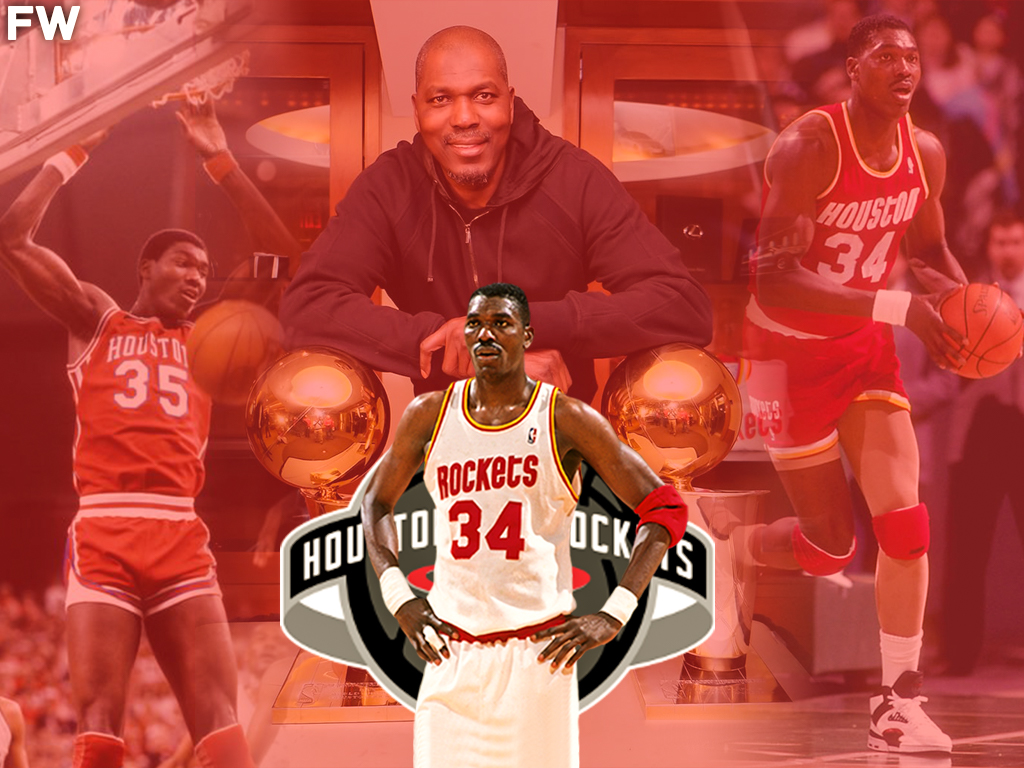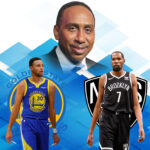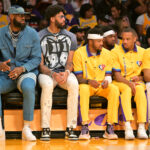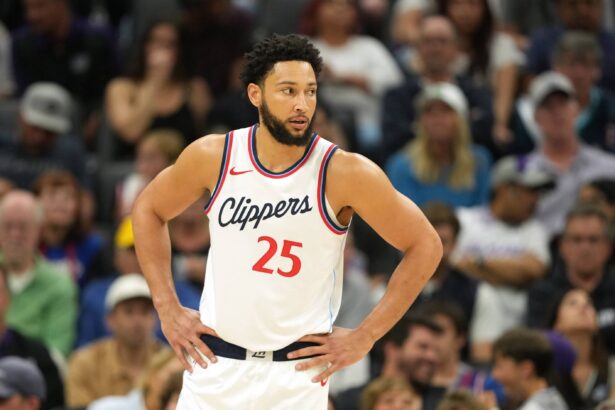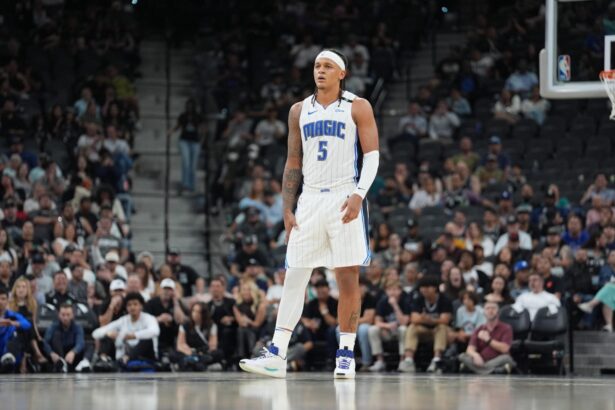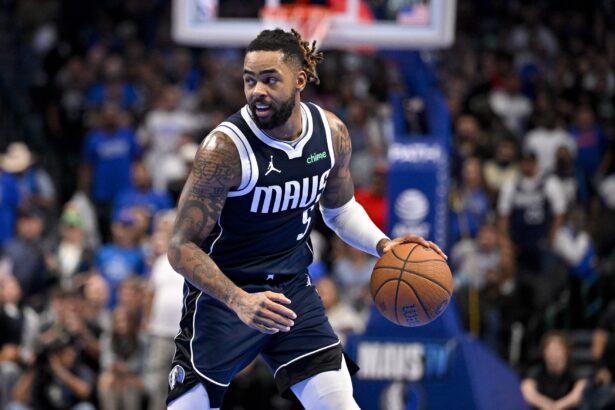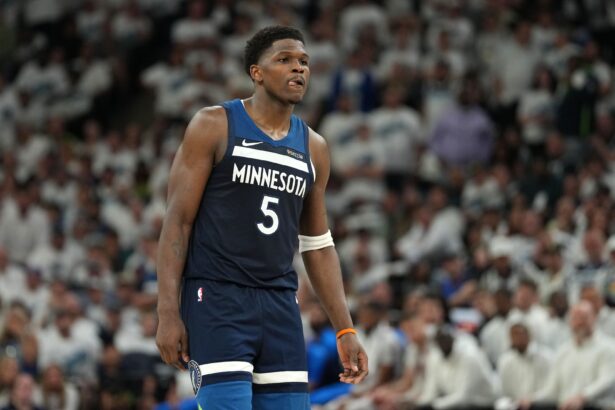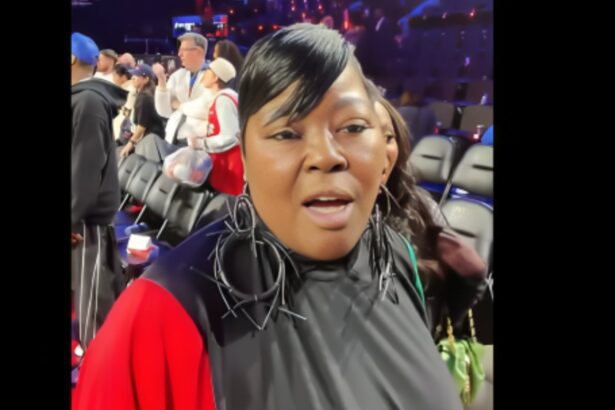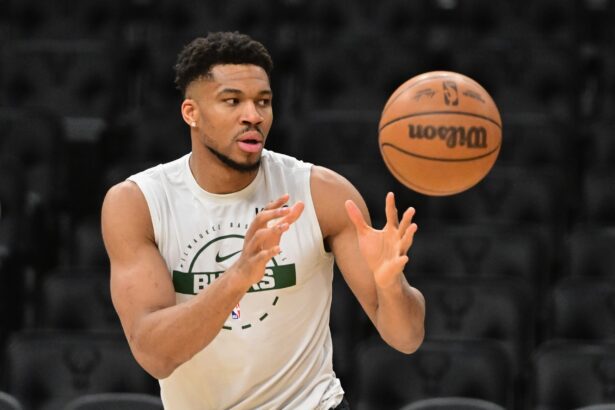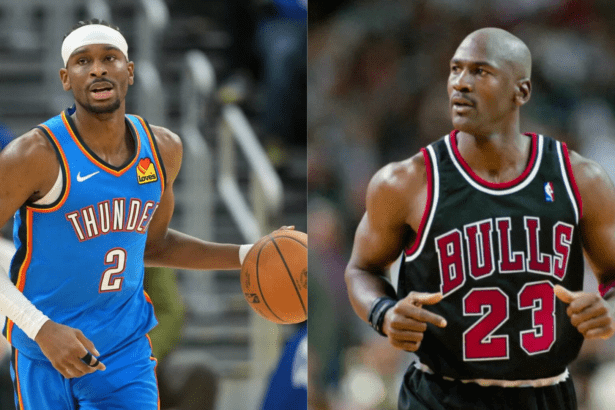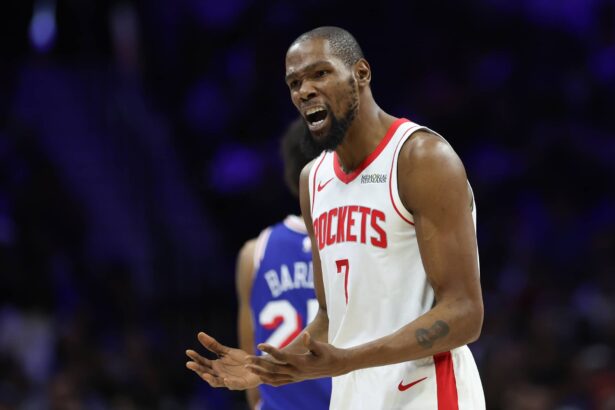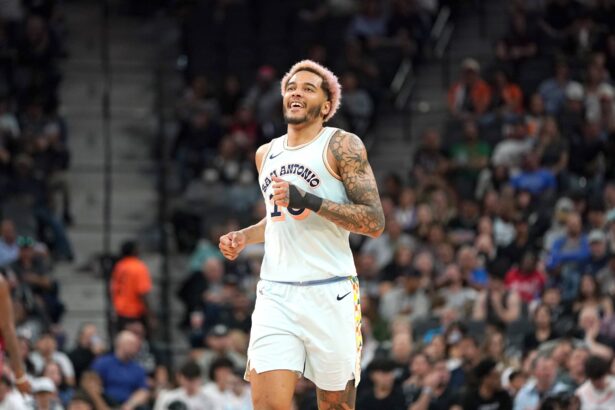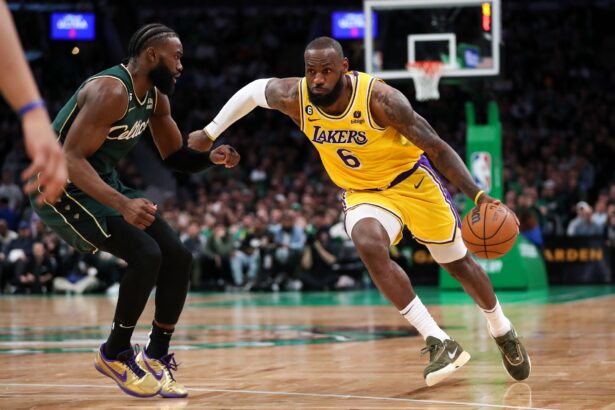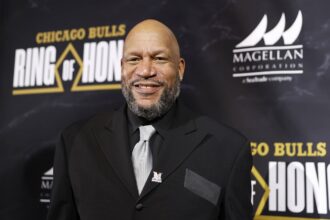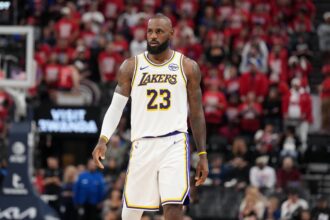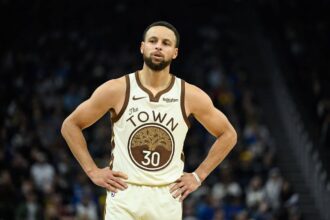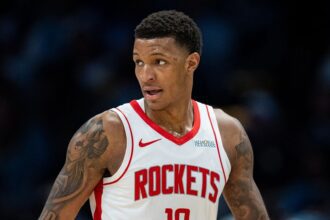The NBA has a rich history of dominant big men. From Bill Russell to Wilt Chamberlain, the league has been blessed by the presence of their post play. In 1984, the league would be blessed once again.
- The Beginning Of The Dream
- Olajuwon Is College Bound
- Welcome To The NBA, Mr. Olajuwon
- “Akeem” Becomes “Hakeem” And An NBA Champion
- From Back To Back Champion To Retirement
- Next
- Tim Duncan: The Biography Of The Big Fundamental
- Grant Hill: The Superstar Whose True Potential Was Ruined By Injuries
- Ray Allen: The Story Of One Of The Greatest Shooters In NBA History
- The Reason Why Bill Russell And Wilt Chamberlain Didn’t Talk For More Than 20 Years
- The Story Of How The Silna Brothers Turned $1 Million Into $800 Million Without Owning An NBA Team
The 1984 NBA Draft is regarded as one of the best NBA Drafts in history. The most notable player drafted was Michael Jordan, which the Chicago Bulls took with their third pick.
Since Jordan went with the third pick, who went number one? The answer to that question was a player from Lagos, Nigeria, Akeem Olajuwon.
The Beginning Of The Dream
As a child, Olajuwon never played the game of basketball. He was into soccer and handball. It wasn’t until Olajuwon was 15 years old that he discovered basketball.
Once Olajuwon started to play basketball, he realized it wasn’t something that would come easy to him. It would take two years before Olajuwon got good at the game.
As a 17-year-old, Olajuwon got so good at the game that he helped lead the Nigerian National Basketball team to third place in the All-African tournament. Even with this success, Olajuwon wasn’t fond of playing at the center position.
In an interview with the Players Tribune, Olajuwon described being naïve about the game of basketball:
“As it turned out, being naïve about basketball worked in my favor. I didn’t approach basketball with any preconceptions. When my coach told me to play the center position, I didn’t know what he meant. I could name the five positions, but I couldn’t really explain the difference between a center and a small forward. The summer before I began college, my coaches would yell at me during practice, ‘Hakeem, you’re playing center! Just stay in the key!’ I didn’t want to stay in the key. I watched the guards, and I was inspired by their creativity. The key was boring.”
Olajuwon didn’t want to play at the center position, he wanted to be a guard:
“I wanted to dance in and out of the paint, all over the court. I saw guards handling the ball and I’d say, ‘Man, I want to do that stuff.’ So I developed my outside game. I didn’t just do big man drills. I worked on my dribbling and my mid-range jumper. I worked on my passing and my footwork. If I had a slower guy guarding me, I would draw him outside of his element. I could get an easy jumper, or I could cross him over and beat him to the rim. If he was smaller, I’d get early position inside and post him up. I learned that basketball and soccer are similar in at least one way: You take what the defense gives you. Soon, coaches stopped telling me to stay in the key.”
This idea of wanting to be a guard would serve his game well later on in his career, as he would redefine the center position in the NBA.
Olajuwon Is College Bound
Akeem Olajuwon wasn’t highly recruited by colleges to play basketball. The University of Houston’s coach, Guy Lewis, only agreed to have Olajuwon visit the University of Houston after his friend told him he should.
Lewis was impressed with Olajuwon’s game and he’d eventually be redshirted as a freshman at the University of Houston. As a freshman, Olajuwon didn’t see much playing time.
Olajuwon wanted more playing time, so he sought out advice, thanks to his coaching staff, from NBA MVP, Moses Malone. He’d participate in workouts as well as playing intense one-one games against Malone.
This training with Malone helped Olajuwon develop his skills, and it showed during his junior season when he saw more playing time.
Olajuwon’s play was much improved and the way he dunked the ball effortlessly gained him the nickname “The Dream.” This nickname would follow Olajuwon for the rest of his playing career.
Olajuwon’s Houston Cougars made it to the Final Four in 1982, ultimately losing to Michael Jordan’s North Carolina Tar Heels.
In 1983, Olajuwon led the Cougars to the National Championship Game against North Carolina State. The Cougars would lose 54-52 to the Wolfpack. Olajuwon would play well, scoring 20 on 7-15 shooting to go along with 18 rebounds.
In 1984, once again, Olajuwon’s Cougars were back in the national championship game, this time against the Patrick Ewing led Georgetown Hoyas. Olajuwon’s Cougars would fall short again, losing 84-75.
Olajuwon would score 15 points on 6-9 shooting. He grabbed 9 rebounds while collecting 2 blocks.
After the 1984 championship game, Olajuwon debated with himself about returning for his senior year or declaring for the NBA Draft. That year, the NBA Draft was decided by a coin flip, and the Houston Rockets were one of the teams that had a chance to get the first pick.
Olajuwon wanted to stay in Houston, to play for the Rockets. So, Olajuwon said his goodbye to college, and he declared for the 1984 NBA Draft.
Welcome To The NBA, Mr. Olajuwon
Akeem Olajuwon’s wish came true when the Houston Rockets won the coin flip and secured the first pick. Everyone knew Olajuwon would be selected first, despite having other big names in the draft, including a player by the name of Michael Jordan.
Olajuwon was the perfect fit for the Rockets. He joined fellow big man, Ralph Sampson, forming a backcourt known as the “Twin Towers”.
This new “Twin Towers” attack saw immediate success for the Rockets as they recorded 19 more wins than the previous season to finish with a 48-34 record. The Rockets entered the 1985 NBA Playoffs as the third seed in the West, but they would ultimately lose 3-2 to the sixth seed Utah Jazz.
Olajuwon had himself a season as a rookie. He finished the year with averages of 20.6 points, 11.9 rebounds, 2.7 blocks, and 1.2 steals per game. This was good enough to earn him the second most votes for Rookie of the Year; he lost to Michael Jordan.
The following season, the Rockets performed even better than the year before, finishing with a 51-31 record. Olajuwon’s game continued to blossom as he finished the season with averages of 23.5 points, 11.5 rebounds, 3.4 blocks, and 2.0 steals per game.
Olajuwon was quickly proving to everyone that he was one of the best two-way players in the game. His incredible play helped to earn the Rockets the second seed in the West.
The Rockets stormed through the Western Conference. They swept the Sacramento Kings 3-0 in the First Round. Then, in the Semifinals, they defeated the Denver Nuggets 4-2, and most impressive was their 4-1 series victory over the top-seeded Los Angeles Lakers in the Western Conference Finals.
Olajuwon found himself battling against one of the greatest big men and players in general, Kareem Abdul-Jabbar… He didn’t back down. Olajuwon outplayed Jabbar accumulating averages of 31.0 points, 11.2 rebounds, 2.2 steals, and 4.0 blocks per game in the Western Conference Finals.
Jabbar, on the other hand, averaged 27.0 points, 6.8 rebounds, .8 steals, and 2.4 blocks per game. Olajuwon’s play was inspiring; this was especially true with his 40 point, 22 rebound game in Game 3.
Next up for Olajuwon’s Rockets was another legendary franchise and player in the Larry Bird-led Boston Celtics. It was the NBA Finals, and the second-year man in Olajuwon had a chance to become a champion already.
This, unfortunately, wouldn’t happen as the Celtics defeated the Rockets 4-2. Olajuwon played well, averaging 24.7 points, 11.8 rebounds, 2.3 steals, and 3.2 blocks per game. It wouldn’t be enough to win the title, but a learning experience for sure.
Olajuwon’s Rockets wouldn’t make it back to the NBA Finals during the 1980s, as the Lakers, Celtics, and the Detroit Pistons held the league hostage with their incredible play. But a new decade was upon the Rockets, and Olajuwon was looking to blast off.
“Akeem” Becomes “Hakeem” And An NBA Champion
A new decade (1990s) arrived and a “new” Olajuwon was ready to show up as well. In 1991, Akeem Olajuwon, a devout Muslim, decided to change his name to Hakeem Olajuwon. This may look like a subtle change, but there’s meaning behind the “H”:
“It’s no big deal,” Olajuwon said in a 1991 interview. “I just want to go back to using the original spelling, the way it is meant to be spelled in Arabic.”
Olajuwon added that ‘Akeem’ has no translated meaning, but ‘Hakeem’ translates to mean a wise man or a doctor in Arabic. He went on to explain why 1991 was the right time for the name change:
“I didn’t really think it mattered when I first came here and they spelled it that way at the University of Houston. But when I would go back home or when I would talk to my mother, she would ask me why my name has changed. But now I’ve just decided to put the ‘H’ in the front and make it Hakeem. That’s it.”
Olajuwon’s name change was a positive for him to start the 90s, but a contract dispute with the Rockets would put a sour taste in his mouth. It was the winter of 1992 and Olajuwon decided his play earned him the right to get more money.
Olajuwon requested that the Rockets should give him a new contract. Rockets owner, Charlie Thomas, disagreed.
The Rockets found themselves in a mess during the 1991-92 NBA season. They were 26-26 after blowing a 24-point fourth-quarter lead to the worst team in the league, the Minnesota Timberwolves.
Around the same time, fellow big man, Patrick Ewing, signed an extension on his contract worth $9 million more than his original. This upset Olajuwon because he felt like he was just as good as Ewing, yet he was only making $3 million per year.
Owner, Charlie Thomas, didn’t want to extend Olajuwon’s contract mainly because he had plans to sell the Rockets. If he extended Olajuwon’s contract by a lot, then the potential new owner would have to pay for it.
So, Thomas held back and wouldn’t extend ‘The Dream’s’ contract. Olajuwon himself would eventually be accused of holding back from playing because of the contract dispute.
On March 16, 1992, Olajuwon told the Rockets management that if they won’t pay him, then he wanted to be traded… Right away. The Rockets’ management didn’t buy into his threats, so they didn’t entertain ‘The Dream’.
The very next day in a game against the Los Angeles Clippers, where the Rockets won, Olajuwon strained his hamstring, which forced him to miss the next six games. Rockets General Manager, Steve Patterson, didn’t buy that Olajuwon was hurt, especially after their team doctors cleared Olajuwon to play on March 21st against the Sacramento Kings.
Olajuwon said he couldn’t put pressure on his hamstring and that he wasn’t able to return that quick. Patterson believed Olajuwon was faking his injury over being upset about his contract.
The Rockets didn’t list Olajuwon as injured, but rather as “refused to suit up”. Patterson suspended Olajuwon indefinitely as their “beef” continued to grow.
According to the Chicago Tribune, Olajuwon became irate over Patterson’s accusations that he threatened to sue him and the Rockets:
“(Patterson) has attacked my reputation, my integrity,” Olajuwon told the Houston Post. “Tell Steve he’s stupid. I’ll sue them for everything they’ve got.”
It would take a trip to Japan, where the Rockets would open their 1992-93 season, in an effort to globally grow the NBA, for Olajuwon to repair his relationship with the Rockets.
Olajuwon sat next to Thomas and his kids on the plane, and this gave them time to talk things over. They reportedly squashed their beef and Olajuwon started playing with great effort, once again.
Eventually, Olajuwon was awarded a new contract worth $30 million, and it extended into the 1998-99 season. The saga over the contract dispute was finally over and Olajuwon was relieved:
“I’m glad this is over with,” Olajuwon said.
The Rockets finished the 1992-92 season with a 55-27 record and the second seed in the West. The Rockets would eventually lose 4-3 in the Semifinals against the Seattle SuperSonics.
Despite the early exit, the season was a success for Olajuwon. He got the contract extension he wanted and for the first time in his career, he won the Defensive Player of the Year Award.
https://www.youtube.com/watch?v=gGI99aAkRks
The 1993-94 NBA season would be like a dream for “The Dream”. First, Charlie Thomas sold the Rockets and their new owner, Leslie Alexander, was all in on making sure the Rockets were contenders.
Olajuwon would lead the Rockets to a 58-24 record in the 1993-94 season. This was the second-best record in the league.
Olajuwon won his second straight Defensive Player of the Year Award and he’d win the 1993-94 NBA MVP with averages of 27.3 points, 11.9 rebounds, 1.6 steals, and 3.7 blocks per game. This year, Olajuwon was ready for the playoffs.
The Rockets stormed through the playoffs, making their first NBA Finals since 1986. This time, they’d face fellow big man, Patrick Ewing and his New York Knicks.
This was Olajuwon’s chance to prove to everyone that he was the best big man in the league and, with Michael Jordan retiring before the season, the best player in the game. Olajuwon was ready for the challenge.
After six games, the series was tied 3-3 and an epic Game 7 in Houston was upon NBA fans. After being denied a title in the 1986 NBA Finals, Olajuwon was ready to earn his championship ring.
https://www.youtube.com/watch?v=M3LIzFcpdSo
The Rockets won Game 7 with a score of 90-84. Olajuwon finished the game with 25 points, 10 rebounds, 7 assists, and 3 blocks.
The Rockets and Olajuwon were NBA champions and Olajuwon was now an NBA Finals MVP. The league was now Olajuwon’s, and the Rockets wanted to prove they were in the same class as the Boston Celtics, Los Angeles Lakers, and Chicago Bulls.
From Back To Back Champion To Retirement
The following season didn’t go as planned for Olajuwon’s Rockets. They finished as the sixth seed in the West with a 47-35 record.
Nobody believed the Rockets would win the title again. In fact, nobody had them beating the third-seeded Utah Jazz in the first round.
Yet, Olajuwon was a dreamer. He wouldn’t let his teammates quit. The Rockets, led by Olajuwon, won 3-2 in their first-round matchup against the Jazz.
Then, they won in seven games against the Phoenix Suns in the Semifinals. The Rockets kept this momentum going as they faced the San Antonio Spurs in the Western Conference Finals.
The Spurs had the 1994-95 MVP in David Robinson, but it didn’t matter. The Rockets had Olajuwon, and that was enough. The Rockets won the series 4-2 over the Spurs.
The Rockets and Olajuwon faced off against the young star center, Shaquille O’Neal, and the Orlando Magic.
Once again, the Rockets were doubted. Most people believed the young Magic would end the Rockets’ unprecedented run. Olajuwon had other plans.
Olajuwon would completely outplay O’Neal, showing how important experience is. “The Dream” averaged 32.8 points, 11.5 rebounds, 5.5 assists, 2.0 steals, and 2.0 blocks per game.
https://www.youtube.com/watch?v=6iKU6SObZQQ
The Rockets made history by becoming the first sixth seed to win an NBA championship, as they swept the Magic 4-0. Olajuwon would win his second straight NBA Finals MVP.
The Rockets also became the first team in NBA history to defeat four 50-win teams in one postseason. This was a season to go down in the history books and it solidified Olajuwon’s place in NBA history.
Olajuwon would go on to play seven more seasons. He played six more with Houston and he finished his career in Toronto with the Raptors.
Olajuwon finished his “dream” career with averages of 21.8 points, 11.1 rebounds, 1.7 steals, and 3.1 blocks per game. Olajuwon was named to the NBA 75th Anniversary Team and he was inducted into the Basketball Hall of Fame in 2008.
After retiring in 2002, “The Dream” has worked with plenty of NBA stars, helping them to develop their post moves, like his famous “dream shake”.
The most famous player Olajuwon trained was Kobe Bryant, and it showed on the court as Bryant’s post moves advanced to a whole ‘nother level.
Hakeem Olajuwon may be retired, but his “dream” of a career is still being talked about to this day. His impact on players, especially in the post, will probably go on forever.

